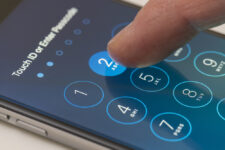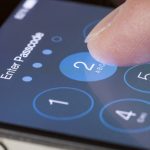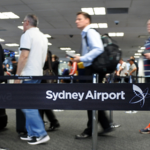Can Police In NSW Search Through Your Phone Without a Warrant?

Queensland police have come under fire for their inconsistent treatment of travellers coming into the state, and making authoritarian requests to check passenger phone data.
Passengers arriving into the Sunshine Coast Airport have posted online about being confused and angry at their treatment by police, calling the ‘interrogation tactics’ including their demands to check smartphones, a gross invasion of privacy.
Searching through phones
Upon arrival, travellers are split into two lines – Queensland and non-Queensland residents, which has happened previously and was reinstated when Victoria went into lockdown earlier this month.
Some travellers say they were ushered through the process quickly and efficiently, after showing documentation including identification to prove their place of residence, others say they were given the ‘third-degree’ and the disparity of treatment has led many people to complain that the system for checking passengers is inconsistent, unfair and potentially ineffective.
One returning Queensland resident says the way he was treated was “horrendous, rude and vile” and he was made to feel as though he were lying.
Having nothing to hide, he handed his phone over to police when requested, and they proceeded to go through the Google Maps app on his phone to determine where he had been while visiting Sydney.
Other passengers who don’t have the maps GPS function turned on, say they had to show police officers bank transactions to prove where they had been before arriving in Queensland.
Queensland Police Service (QPS) has defended the actions of officers saying they are “unfortunate but necessary” and that officers are only acting under the direction of the Chief Health Officer.
However, the Queensland Council for Civil Liberties says some of the questioning by police is completely unnecessary — and “an invasion of privacy.”
Can police in NSW search through your phone without a warrant?
There are two main sets of circumstances whereby a NSW police officer may stop and search a person without a warrant, and then seize and confiscate items the person has in his or her possession, such as a mobile phone.
Section 21 of the LEPRA empowers police to stop and search a person if the officer has a suspicion on reasonable grounds that they’re in possession of a stolen item, an illicit substance, or if they have a dangerous weapon related to a crime, or anything else used or intended to be used in an offence.
The section also permits an officer to seize and detain an item in the person’s possession, if the officer has a reasonable suspicion that it’s stolen, or that it has or will be used in committing an offence, or contains evidence of an offence.
Under section 36, police can stop and search a vehicle in similar circumstances to what’s just been set out, as well as seize and detain items for the same reasons. In addition, police can search a vehicle if it’s in the vicinity of a public place or a school and is “likely to give rise to a serious risk to public safety”.
Are there other circumstances that apply?
There are two other situations set out in the LEPRA that allow police to seize mobile phones without a warrant, and both are in the context of a person having been formally arrested.
Section 27 of the LEPRA stipulates that a police officer can search a person on or after their arrest if he or she has a reasonable suspicion they’re carrying something that poses a danger, or could allow them to escape, or has been used or was to be used in an offence, or could provide evidence.
And section 28A allows police to search a person in lawful custody after their arrest and seize anything they have on them. This must be carried out at a police station, a place of detention, or immediately before or during transportation to one of these places.
Common law clarification
Despite the existence of the LEPRA, a common law case continues to be cited with a view to clarifying the laws relating to seizure.
This is the 1970 UK case Ghani v Jones, where Lord Denning found that police can seize an item from a non-suspect when they have a reasonable suspicion a serious crime has been committed, and the item is the fruit of that crime, was used in it or is evidence of it.
In the 2017 NSW Local Court case of Police v Ronald Sines; Police v Andrew Love, Magistrate Vivian Swain applied Ghani, when she found that police had the power to seize the phone of Mr Love, who’d been filming officers arresting Mr Sines, as it contained evidence of an assault of an officer.
But, can NSW police search through your phone?
All of that said, the question of whether a police officer can trawl through your phone with impunity after they’ve taken possession of it remains a murky area.
Section 30 of the LEPRA sets out that an officer can do a number of things when searching a person, including “examine anything in the possession of the person”. This means an officer can certainly take a look through your wallet or your bag, or indeed your phone, if the outlined reasonable suspicion is established.
And there is certainly nothing in the legislation that expressly prohibits an officer from looking through any part of your phone that is not related to the ground upon which their reasonable suspicion was based.
However, given the emphasis in the LEPRA – and in the second reading speech leading up to its enactment – on the requirement of reasonable suspicion and the link between that suspicion and the subsequent search and seizure, there remains an unsettled question as to whether a police officer is legally entitled to access information that is not related in any way to their suspicion – such as go through intimate images that are clearly unrelated to a search for drugs.
Clarification by the legislature or courts on the legal parameters of a search in that context would be desirable.
Do I have to give an officer my passcode?
Under federal law, forcing an individual to disclose his or her password, personal identification number or private encryption keys to enable access to a smartphone or a computer requires a warrant.
Section 3LA of the Crimes Act 1914 (Cth) sets out that a constable may apply to a magistrate for an order requiring an individual provide them with access to their electronic device if it’s suspected to hold evidence of a crime. And the owner doesn’t have to be a suspect of the wrongdoing.
A constable is defined in section 3 of the Crimes Act as a member of the Australian federal police or any state or territory police force.
And it’s a crime not to comply with an assistance order. A person who doesn’t is liable to 5 years imprisonment and/or a fine of up to $63,000. However, if the assistance order is in relation to a serious crime or serious terrorism offence, 10 years behind bars applies, as well as a $126,000 fine.
So, what’s the bottom line?
If a police officer does stop and search you, it’s best to follow their directions, as resisting can lead to a charge of hindering police, or resisting arrest if they make the decision to arrest you.
Always make sure your phone is secured with a password, as unless an officer is exercising a commonwealth power or gets an order from a court, you’re not required to provide them with access to it.
And lastly, remember that whatever you do, don’t ever consent to a search, as if a good lawyer is able to prove the search was carried out illegally, any evidence found against you has the potential to be thrown out of court, in accordance with section 138 of the Evidence Act 1995 (NSW).
If you do provide your informed consent, the search will be considered legal even if police did not have a suspicion on reasonable grounds to conduct it.
What about Australian Border Force officers?
The legislative powers that Australian Border Force (ABF) officers have to search people’s baggage at Australian airports are contained in section 186 of Customs Act 1901 (Cth).
These include opening baggage, reading documents, and using an X-ray or detection dog to search baggage.
The Customs Act allows officers to retain an electronic device for up to 14 days if there is no content on the device which renders it subject to seizure. If it is subject to seizure, the device may be withheld for a longer period.
ABF officers have the power to copy a document if they’re satisfied it may contain information relevant to prohibited goods, to certain security matters or an offence against the Customs Act. A document includes information on phones, SIM cards, laptops, recording devices and computers.








